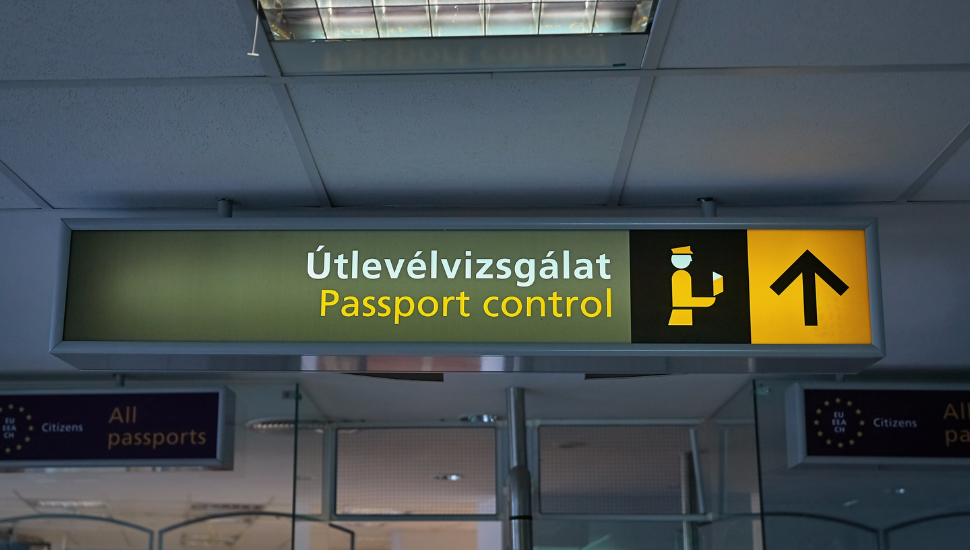A Complete Guide to ETIAS for UK Citizens
Britons are set to face new regulations in order to undertake holidays or business trips to the EU with the forthcoming implementation of ETIAS.
As things stand, UK travellers only need to show up in an EU nation with their passport – they do not need to provide any additional details or tell authorities why they are there.
However, with the UKs exit from the EU, British citizens are now third country nationals and will soon no longer automatically be allowed into the EU or other Schenghen Area countries, but will instead require an ETIAs visa waiver.
Non-EU citizens will need to register their details and intentions online, using the new European Travel Information and Authorisation System (ETIAS).
What is ETIAS?
ETIAS has been in the EU pipeline for some time now and has been designed to improve security across the bloc.
ETIAS stands for European Travel Information and Authorisation System. It is a form of electronic travel authorisation, also known as a visa waiver, that stands somewhere between a full visa and unrestricted access – as we have now.
Brexit and ETIAS are coincidental, ETIAS is not a consequence of Brexit. However, British passport holders would not have required the travel authorisation had the UK not left the European Union.
When does ETIAS start?
ETIAS will come into effect from November 2023
Who will need an ETIAS for travel to European Union countries?
All non-EU or Schenghen Area travellers will need an ETIAS to enter the EU, Iceland, Norway, Switzerland or Lichtenstein.
This means UK citizens will be treated in the same way as, for example, an Australian or a Canadian.
How will ETIAS work?
Citizens of the UK will join those from over 50 visa-exempt countries outside of the European Union who will be required to make an ETIAS application before their trip to the Schengen Area.
The ETIAS Central Unit will accept ETIAS applications. and these will need to be completed online.
Each applicant's details will be compared to a number of watch lists.
Most applications will be either accepted or refused within a few minutes, but in some cases a decision will take up to 96 hours.
In some cases, additional information may be requested before a decision can be made.
How much will an ETIAS application cost?
To apply for ETIAS, it will cost £6 per traveller.
Everyone aged 18 to 70 must pay for one, while those under 18 and over 70 can get one for free.
What information will I need to provide for an ETIAS application?
The ETIAS Central Unit will want to know your name, address, passport details and other personal data, together with information about your health – especially in relation to any infectious diseases. Any convictions in the last 20 years must also be listed.
You will also need to provide the reason for travel (holiday, business, visiting family etc.) and detail the country of entry and where you will be staying on the first night. This latter rule will adversely affect the more spontaneous traveller.
Those without internet access will need to ask a connected friend or relative to complete the ETIAS application online.
ETIAS with criminal record: Will I be able to apply for ETIAS if I have a criminal record?
If you have previously been convicted of a crime, it will still be possible to apply for ETIAS for travel to the Schenghen Area.
However, depending on the severity of the crime(s) committed and any accompanying sentence(s), a criminal record may considerably reduce an applicant's chances of securing a successful ETIAS application.
Even if your ETIAS application is approved it does not guarantee that the nation operating ETIAS that you intend to visit will permit you entry.
What if ETIAS Central Unit makes a mistake?
If an applicant feels ETIAS has rejected them due to mistaken identity, they can make an appeal.

Am I guaranteed entry if I get an ETIAS?
No. The authorities at the entry nation have the right to refuse you admission even if you have an ETIAS.
You may be asked about your travel plans and why you are in the country.
Now the UK has left the EU, British citizens will no longer benefit from the right to free movement.
How long is an ETIAS valid for?
Like other visa-exempt third-nationals, UK passport holders can stay in the Schengen zone for up to 90 days per 180-day period.
An approved ETIAS authorisation will be valid for 3 years or until the passport expires. British travellers won’t need to apply each time they visit Europe.
So it will be just like before we were in the EU?
No. Before the UK joined the EU in 1973, you simply had to appear at a border with your passport. Now all visitors must provide advance details before they are allowed to enter the bloc.
What about scam ETIAS websites?
There are sure to be a number of scam websites ready to take advantage of ill-informed travellers.
An ETIAS will only cost £6 but scam sites will charge much more for obtaining an ETIAS – or may not even provide one at all.
Various website domains related to ETIAS have already been purchased, suggesting scams will be numerous.
What about passport validity?
Your passport will need to be valid for at least three months at date of arrival.
Will transport companies check my ETIAS?
Yes. Airlines, ferry firms, rail and coach companies will all be required to check you have a valid ETIAS. And they will check rigorously, because they will be liable for getting you home if you arrive at the EU border without a valid ETIAS.
Will I require ETIAS for Spain?
Yes, from November 2023 you will require ETIAS for Spain.
ETIAS for UK citizens will be compulsory in order to enter any member countries of the Schenghen Area, including Spain.
What countries will I need ETIAs for?
There are 27 countries in the Schengen Area. Of these, 23 are members of the European Union and the other 4 are part of the European Free Trade Association.
The ETIAS visa waiver program applies to all of these countries.
The 23 members of the EU that will be implementing the ETIAS are Austria, Belgium, Spain, Portugal, Greece, Italy, Luxembourg, Netherlands, Germany, France, Sweden, Finland, Denmark, Croatia, Lithuania, Latvia, Estonia, Poland, Slovakia, Hungary, Slovenia, Czech Republic, and Malta.
The non-EU member states of the Schenghen area for which ETIAS will be required are Iceland, Norway, Switzerland and Lichtenstein.
The micro stats of Monaco, San Marino, Vatican City will also implement ETIAS.
ETIAS will also be required to enter the following countries that are in the process of joining the Schengen Area:
- Cyprus
- Romania
- Bulgaria

I'm transiting in an EU country. Will I need an ETIAS?
If you change planes and remain 'airside', you won't need an ETIAS. But if you need to enter the country before boarding the next plane, you will probably need one.
If you need to transit between airports, you will certainly need a valid ETIAS.
Are there any EU countries for which ETIAs will not be required?
Of the 27 EU member states, Ireland is the only nation who are not currently part of, or in the process of joining the Schenghen Area.
Therefore, ETIAS will not be required for travel between the UK and The Republic of Ireland.
I’m planning a vacation for longer than 3 months. Will I be covered by ETIAS?
A visa or other permit is needed to stay in the Schengen Area for longer than 3 months.
How will ETIAS affect UK-Republic of Ireland travel?
Despite an ETIAS being required for entry to most EU nations, UK citizens will not require an ETIAs to travel to Ireland as Ireland has not joined the Schenghen Area.
Naturally, if you are planning to visit an EU nation after Ireland you will need an ETIAS.
What about sea travel?
You will need an ETIAS if you are sailing from the UK to an EU state, but an ETIAS will not be required for those sailing between the UK and Ireland.
Busy terminals such as Dover may take considerably longer to get through since ferry companies will need to check all UK citizens have a valid ETIAS.
Get a Quote